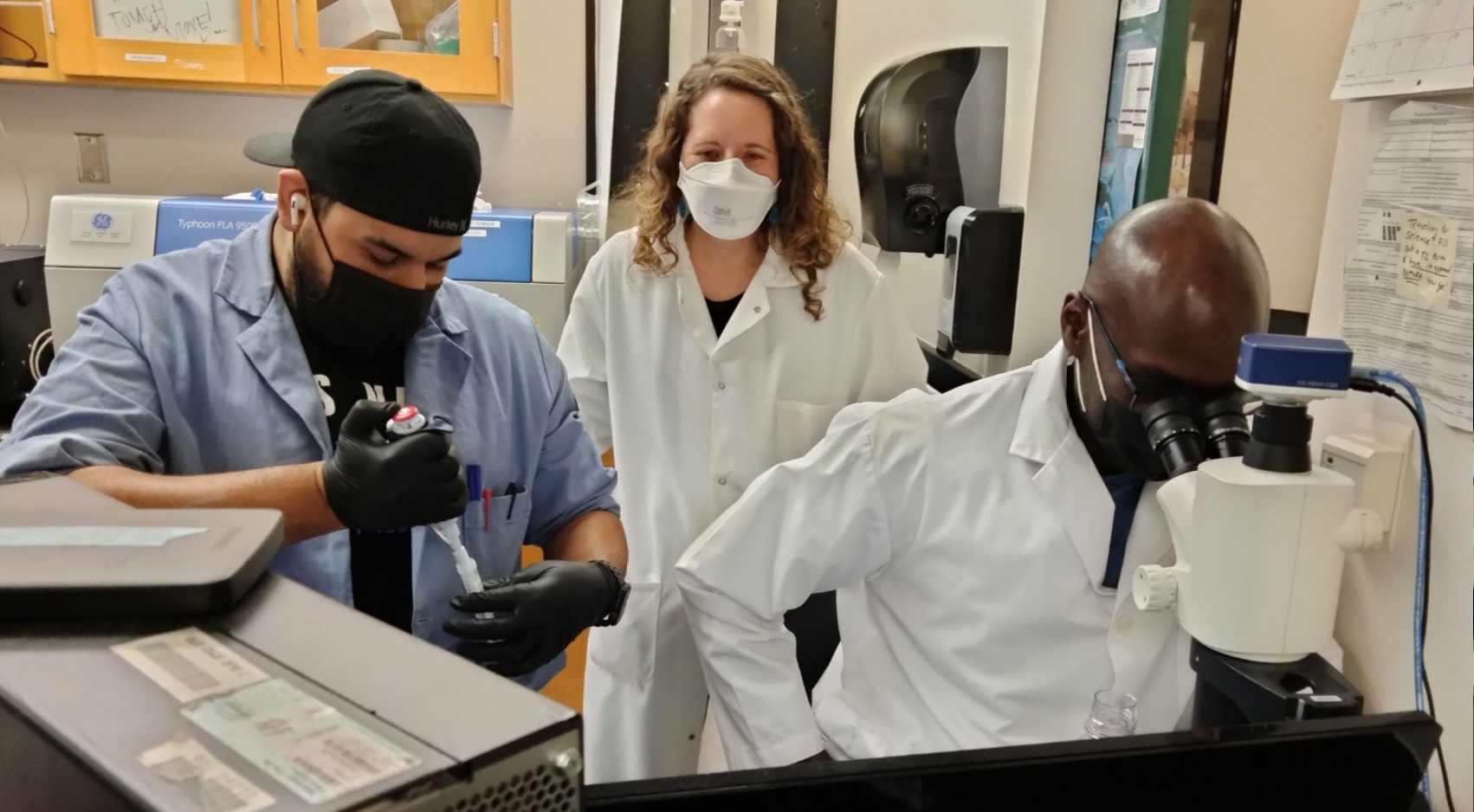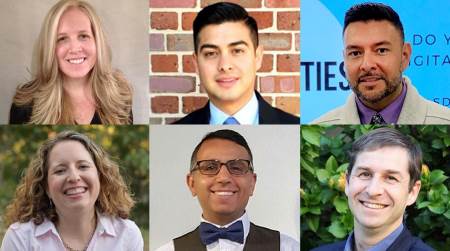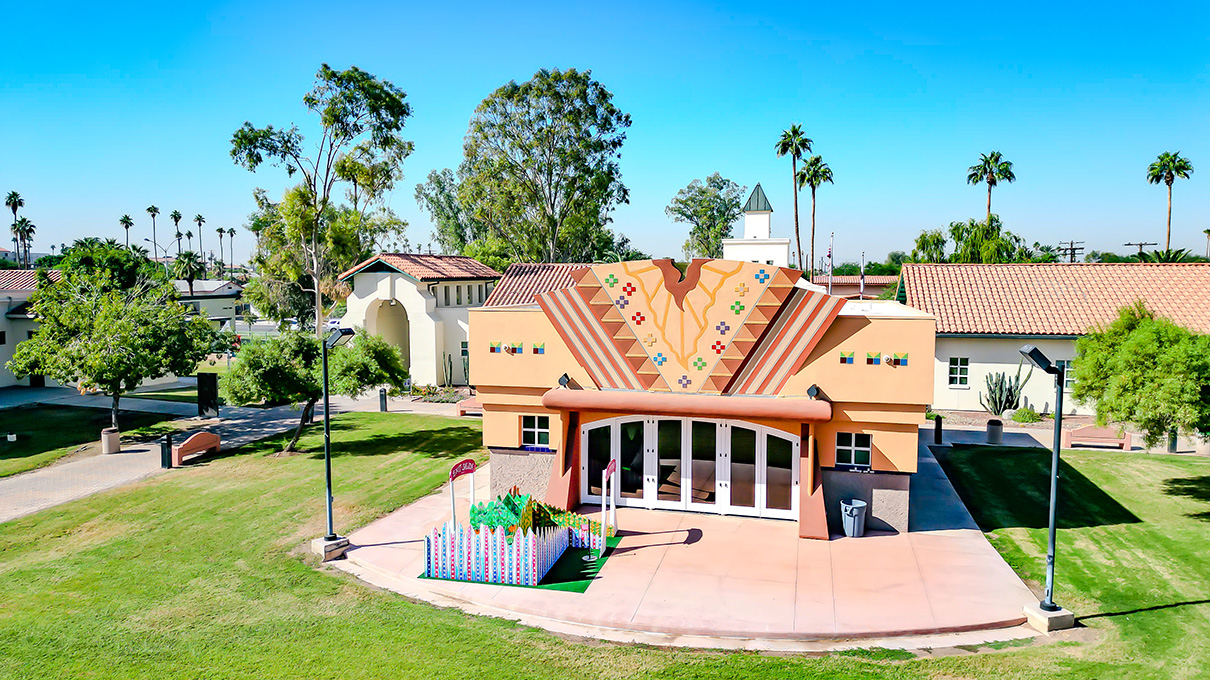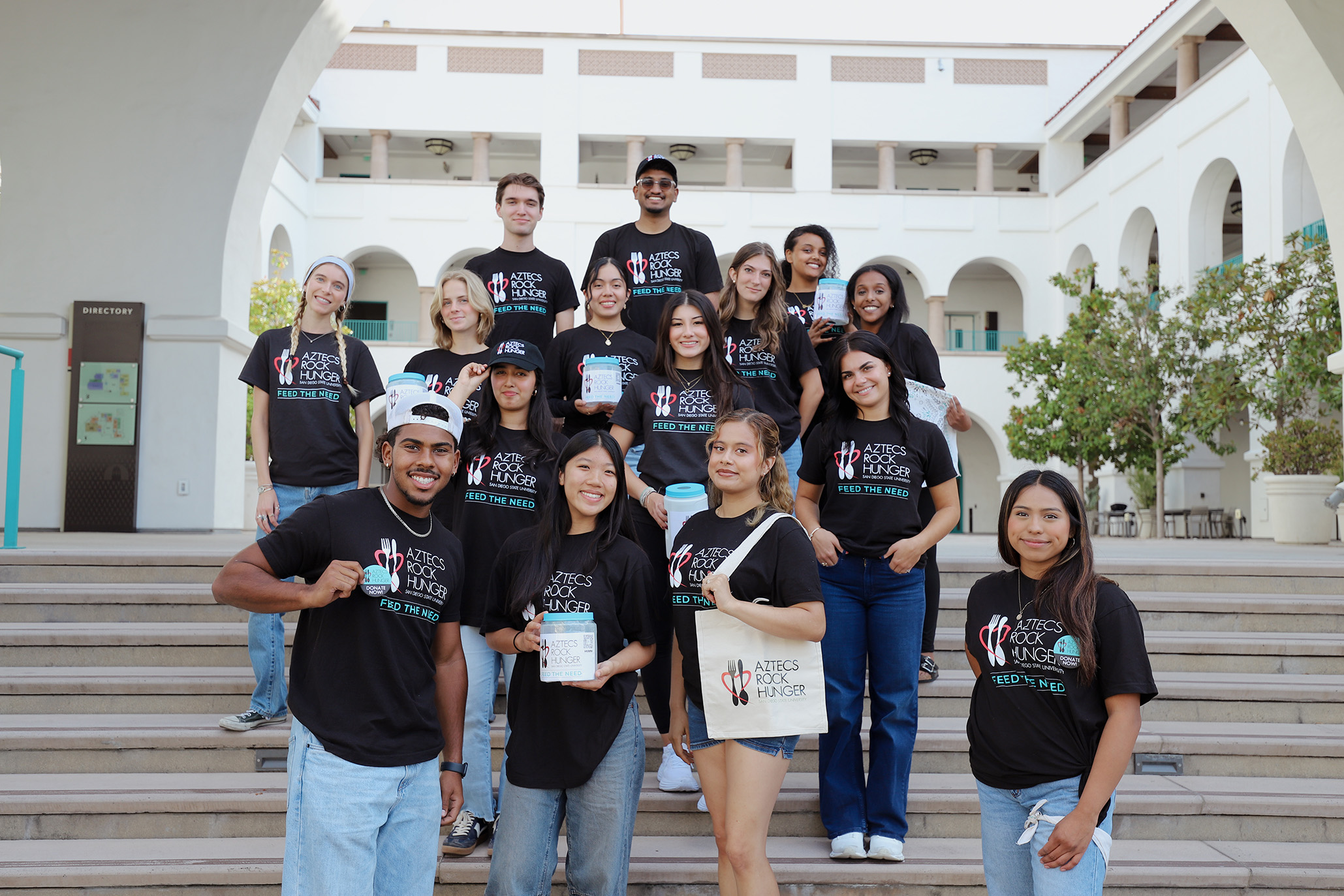Six SDSU Faculty Members Receive New Presidential Research Fellowship
The awards will support research, scholarship and creative activities in a variety of disciplines, from journalism to engineering.

Six faculty members have been named inaugural Presidential Research Faculty Fellows at San Diego State University in recognition of their outstanding research, scholarship and creative endeavors. Each fellow received $25,000 to support their research activities.
Three faculty members promoted to associate professor received the 2022 award: Christal Sohl (chemistry and biochemistry), Humberto Parada Jr. (epidemiology), and Nathian Shae Rodriguez (digital media).
Three faculty members promoted to full professor were also named: Kristen Wells (psychology), George Youssef (mechanical engineering), and Eyal Oren (epidemiology and biostatistics).

“Each of these faculty are leaders in their fields,” said Hala Madanat, interim vice president for research and innovation. “This new award is an excellent way to recognize and reward some of our most competitive scholars, and shows the ongoing investment the university is making in the success of our faculty.”
The new program, jointly sponsored by the Division of Research and Innovation and the Division of Academic Affairs, will award the fellowships annually in association with promotion and tenure.
“We really have strong faculty on our campuses, so it makes it very difficult to just pick a few,” Madanat said. “They went above and beyond the criteria, doing much more than that in the area of research and scholarship.”
Deans from each academic college nominated faculty members based on contributions to their discipline and the impact of their work on the public interest. Madanat and Provost Salvador Hector Ochoa reviewed all of the nominations and made recommendations to President Adela de la Torre, who made the final decision.
“Faculty at SDSU have been engaging in world-class research for decades, and many have received significant external recognition for their work,” de la Torre said. “The introduction of the Presidential Research Faculty Fellows program is part of a more comprehensive strategy to recognize, support and celebrate our highly successful research faculty.”
Digital media expert Rodriguez studies how the media portrays underrepresented groups. For him, being named a fellow reinforced the importance of his work.
“This is something that I feel validates me as a researcher and my place in academia because this award is about creating space — and taking space — for scholars like myself who are brown, queer, Latinx, first-generation, who often produce research that flies under the radar because it's not mainstream or it doesn't fit into a perfect box,” Rodriguez said. “It's an important research, because it really looks at lived experiences of these underrepresented identities that don't really get their voices elevated to high platforms.”
Rodriguez hopes to use the funds to conduct ethnographic research with Latinx and LGBTQ refugees.
“These individuals are simply stellar. This is a way of acknowledging all their great work,” Ochoa said, adding that he believes the awards could enable faculty members to jumpstart new research projects. “Sometimes people need money to do seed projects, which may lead to a grant.”
Parada, whose work examines links between environmental contaminants and cancer, especially in the Latinx community, agrees.
“Being able to use this funding to generate preliminary data will be amazing … and to be able to leverage this to obtain additional funding, I think, will be very beneficial for continuing to advance my career at SDSU,” Parada said.
Sohl, who investigates how enzyme mutations promote cancer, said the funds will allow her lab to tackle previously unexplored questions.
“Having some research funding that isn't as restricted as some grant-related funding that we have is really freeing,” Sohl said. “That allows us to go after unfunded questions that we have — a little bit higher-risk kinds of things, things that I wished that we could do — but we just didn't quite have the funds to do.”
Oren’s research focuses on respiratory health — including COVID-19 — in vulnerable and marginalized communities.
“I'm hoping this allows me to create some more bandwidth to expand our work, particularly in community-engaged research around health disparities,” Oren said, adding that the funds could also help create opportunities for students to get involved in public health research.
Youssef also believes the award will benefit his students. His lab studies how non-traditional materials — such as plastics and composites — change in structure when put under physical loads. But he is also dedicated to expanding research opportunities in engineering for women and other underrepresented groups.
“Research, whether it's applied or fundamental, is a vehicle to achieve social justice. And the engine for that vehicle would be the students,” Youssef said. While the award will enable the purchase of additional equipment for the lab, it will also support his students’ projects and their professional development. “I feel humbled and honored, but also indebted to my students. I don't think I would have been even considered without them,” Youssef added.
Wells and her team conduct multidisciplinary research aimed at breaking down barriers that restrict access to health care. She plans to use the funds to support pilot projects and research conducted by students. “For students to be able to work on various projects, sometimes that takes funding like this,” she said.
The 2022 Presidential Research Faculty Fellows will be recognized at their promotion and tenure dinners in early April.


